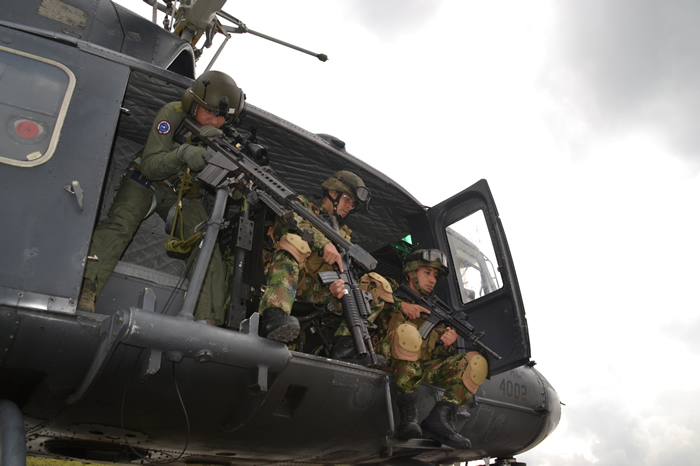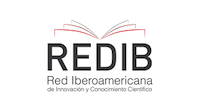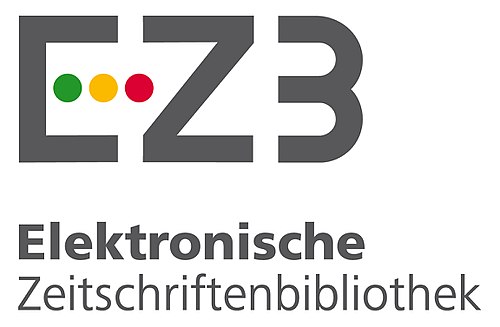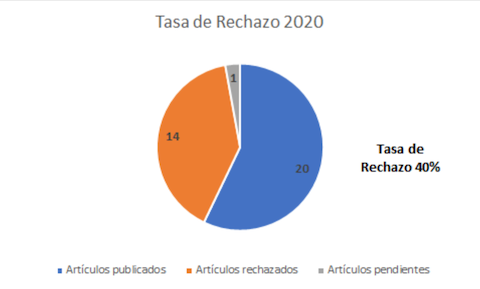Reflection about Fourth Generation Warfare, a Vision from Actors without Power Resources in Traditional Terms
DOI:
https://doi.org/10.18667/cienciaypoderaereo.136Keywords:
Asymmetric Conflict, Asymmetric Super Power, Destabilization of Long EncourageAbstract
This article discusses some of the existing theories around the Modern Warfare phenomena in International System frame under a neo-realistic outlook, looking for characterizing singularities typical to the appearance of the Asymmetric Warfare concept and its use by the authors without power resources in traditional terms. Roughly speaking, the qualifying of Asymmetric is applied to the post-Cold War violent conflicts in which the strategic stature of some of the parts is meaningfully less in comparison to their opponent’s, so that the inferior, with the goal of not being defeated in conventional terms, uses methods, weapons, doctrine, and even non-conventional ethic norms, to carry out its warfare acts, which from Westfalia had been analyzed in function of the traditional actors of the International System and political-strategic conceptions of the trinity war of Clausewitz, and the revolutionary warfare of dialectical Marxist trend in its different shades. Revolutionary Warfare Strategies of dialectical-Marxist trend are considered among others: the Combination of all forms of Fight of Lenin, The Popular Prolonged War of Mao, the Defense of a lonely Country of Stalin, even the Focalism Revolutionary Model of Castro and Guevara.
Downloads
References
Arreguín, I. (2005). How the weak win wars. New York: Cambridge University Press.
https://doi.org/10.1017/CBO9780511521645
Barea, A. (Junio, 2004). Conflictos asimétricos. Revista Ejército No. 758.
Bolívar, A. (Enero-Febrero 2002). La era de los conflictos asimétricos. Military Review, pp46-53.
Brocos, J. M. (2011). "Soft Power" como estrategia de dominio e imposición cultural. Recuperado el 22 de 03 de 2012, de Arbil. org. Disponible en: http://www.arbil.org/arbil100.htm
Brzezinsky, Z. (1998). El gran tablero mundial. Madrid: Paidos.
Bühlmann, C. (2009). Asymmetric Strategies. Military Power Revue der Schweizer Armee - Nr., pp. 8-21.
Carrillo, R. (1995). La guerra psicológica. Electroneurobiología
Departamento de Estado de los Estados Unidos. (s.f.). Agenda de la política exterior de los Estados Unidos. Recuperado el 12 de Abril de 2012, de usembassy-mexico.gov: http://www.usembassy mexico.gov/bbf/ej/ijps0301.pdf
Garcia, D. (Enero, 2006). Centro de Estudios Norteamericanos. Recuperado el 22 de 03 de 2012, de Universidad Alcalá de Henares. Disponible: http://www.uah.es/iuen/workingpapers/garcia.htm#start
Herrera, G. (Mayo, 2006). ¿Por qué la Administración Clinton basó su Política Exterior hacia América Latina. En Democratic Enlargement. Recuperado el 12 de Abril de 2012, de Centro Argentino de Estudios Internacionales. Disponible en: http://www.caei.com.ar/es/programas/teoria/17.pdf
Huntington, S. (1999). The Lonely Supoerpower. Foreign Affairs (35).
https://doi.org/10.2307/20049207
Jessop, B. (2003). The Future of the State in an Era of Globalization. International Politics and Society.
Krauthammer, C. (1990). Unipolar Moment. Foreign Affairs, 70 (1), pp. 22-33.
https://doi.org/10.2307/20044692
Leonard, M. (2008). ¿Qué piensa China?. Madrid: Icaria
Liang, Q., y Xiangsui, W. (2003). La Guerre hors limites. París: Rivages.
Liang, Q., y Xiangsui, W. (2003). La Guerre hors limites. París: Rivages.
Mastanduno, M. (1997). Preserving the unipolar moment. Realist theories and US grand strategy after the cold. International Security, 21(4).
https://doi.org/10.2307/2539283
Mathieu, M. S. (2008). El Comportamiento estratégico de las organizaciones yihadistas y de los actores estatales. Diez años de cambios en el Mundo, en la Geografía y en las Ciencias Sociales, 1999 2008. Actas del X Coloquio Internacional de Geocrítica.
Nievas, F. (2006). Las nuevas formas de la guerra, sus doctrinas y su impacto sobre los derechos humanos. Fermentum, pp. 355-371.
Nye, J. (2003). El coloso estadounidense. En J. Nye, La Paradoja del Poder Americano. Madrid: Taurus.
Nye, J. (2004). Soft Power: the means to succes in world politics. New York: PublicAffairs.
Nye, J. (2011). Smart Power. En J. Nye, The Future of the Power. New York: Public Affairs
Nye, J., y Armitage, R. (2007). Commission on Smart Power a sermater, more secuer America. [En línea] Disponible en http://csis.org/files/media/csis/pubs/071106_csissmartpowerreport.pdf Consultado el 12 de abril de 2012.
Rashid, A. (2002). Yihad el auge del islamismo en Asia central. Barcelona: Ediciones Península.
Suh, J., Katzednstein, P. J., y Carlson, A. (2008). Rethinking security in East Asia: Identity
Ugarte, M. (2005). La relación entre inteligencia y política. Federation Of American Scientist
Van Dijk, T. (1996). Análisis del discurso ideológico. Programa de Estudios del Discurso, pp. 15-43.
Verstrynge, J. (2005). La guerra periférica y el Islam revolucionario. Orígenes, reglas y ética de la guerra asimétrica, pp. 210-214. Power and Efficency. Universidad Nacional de Singapur.
https://doi.org/10.2307/40184707
Waltz, K. (1988). Teoría de la política internacional. Buenos Aires: GEL.

Downloads
Issue
Section
Categories
License
Assignment of Copyrights
Authors assign Ciencia y Poder Aéreo journal the exclusive rights (reproduction, distribution, public communication, and transformation) to exploit and commercialize their work, in whole or in part, in all the formats and modalities of present or future exploitation, in all languages, throughout the life of the work and throughout the world.
All contents published in Ciencia y Poder Aéreo journal are licensed under a Creative Commons Attribution 4.0 International License, whose complete information is available at http://creativecommons.org/licenses/by/4.0/
Under the terms of this license, users are free to download, print, extract, archive, distribute and publicly communicate the content of articles, provided that proper credit is granted to authors and Ciencia y Poder Aéreo, scientific journal of the Graduate School of the Colombian Air Force. Except when otherwise indicated, this site and its contents are licensed under a Creative Commons Attribution 4.0 International License.
For other uses not considered under this license it is required to contact the Director or the Editor of the journal at the e-mail address cienciaypoderaereo1@gmail.com.
The Graduate School of the Colombian Air Force and this publication are not responsible for the concepts expressed in the articles, including the metadata or the affiliation stated by authors. This is the full responsibility of the authors.





















